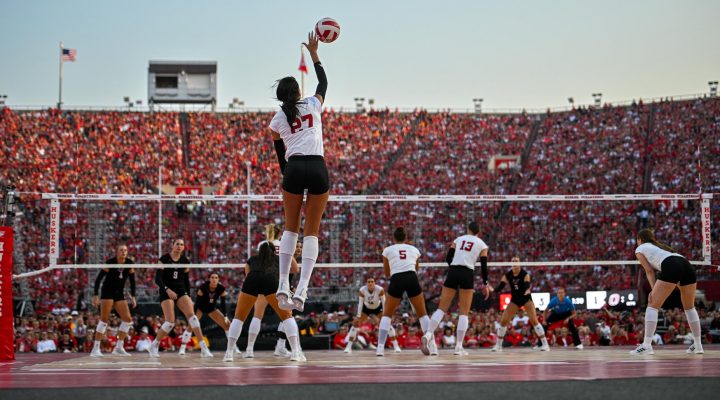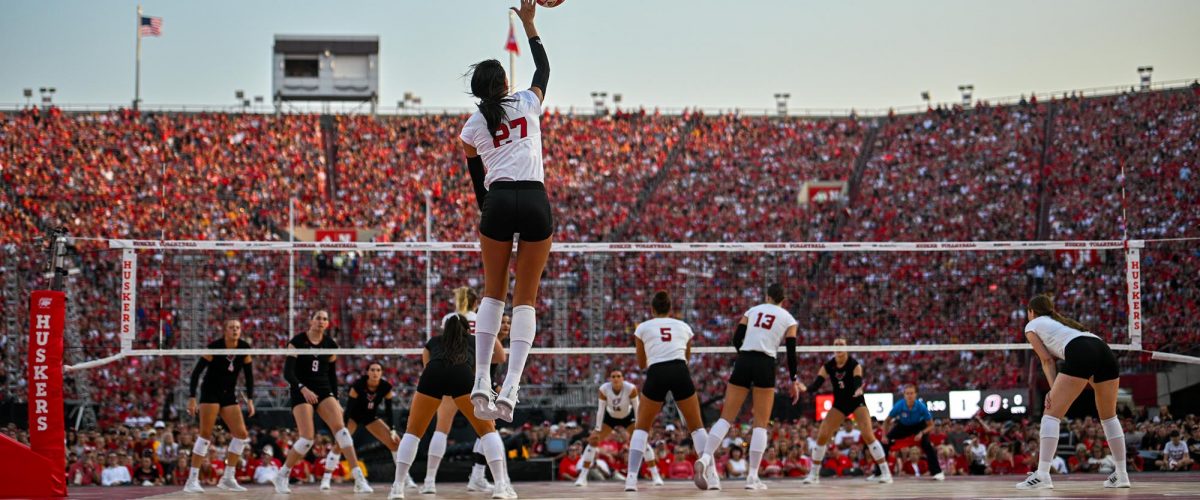With week one of the college football season kicking off last weekend, fans across the country began dreaming once again about the gridiron glories of violence and victory. And for the parts of American culture shaped by white evangelicals, these simmering passions carry culture war implications and opportunities for justice that mostly go unrecognized.
In an interview with Baptist News Global in 2021, Kristin Du Mez said: “Sports, especially football, serves as a metaphor for war.” She added that for white evangelicals, football is “definitely the most masculine sport for their purposes.”
At the time, Du Mez was discussing the white evangelical fascination with quarterback and missionary Tim Tebow, noting how “he was essentially proselytizing a white savior narrative in terms of his volunteer work.” But as she listened to Tebow speak, something was lacking.
“What was missing was any sense of privilege or of structural injustice,” she observed.
But in a complete reversal of this obsession with victory through violent masculinity that is unaware of its privilege or of structural injustice, it’s especially notable that the two largest stories in sports this past week were of a 1-11 football program from last year that was taken over by a Black head coach coming out of a Historically Black College or University and of a women’s volleyball team.
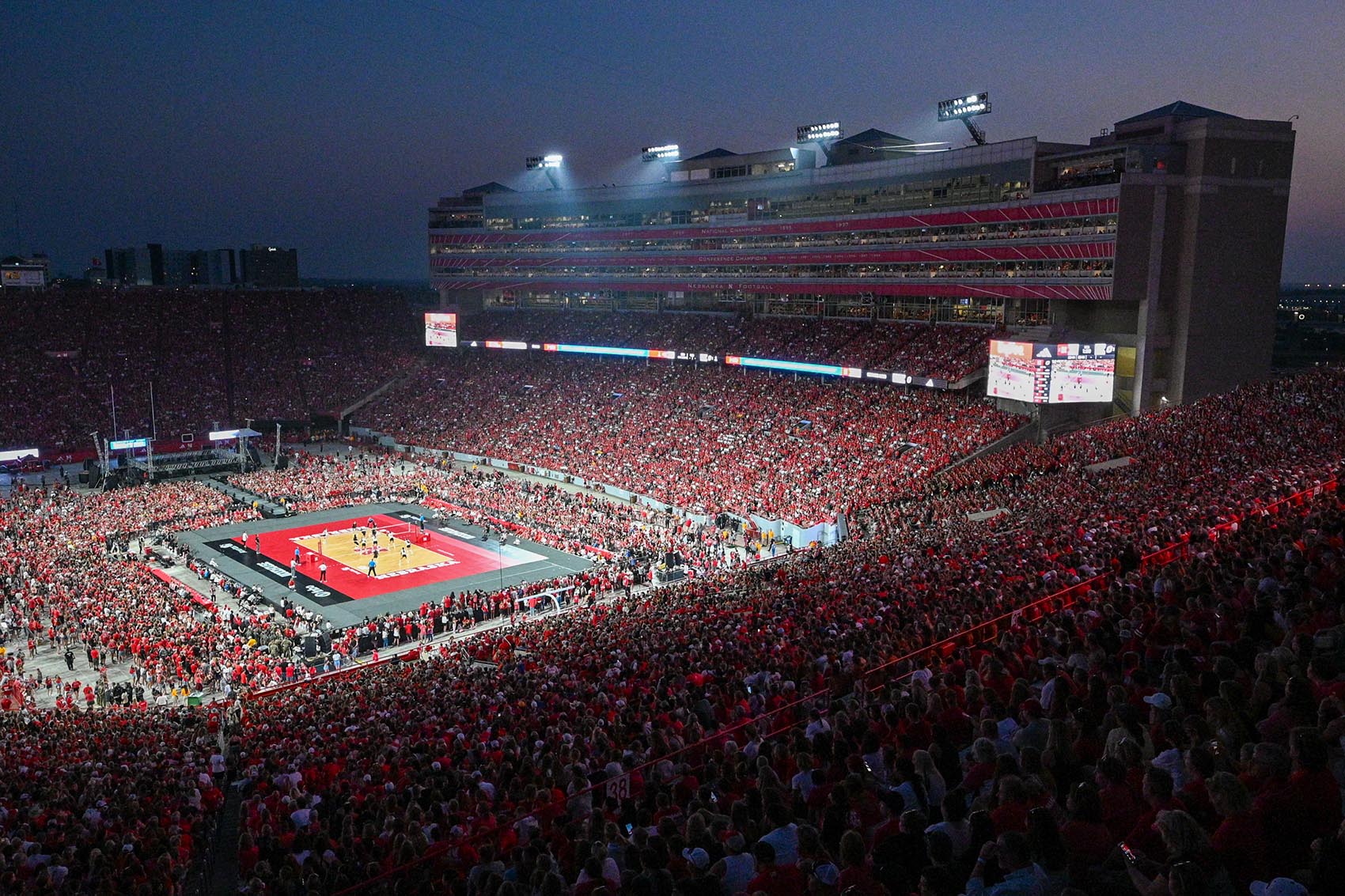
General view of the stadium during the match between the Nebraska Cornhuskers and the Omaha Mavericks at Memorial Stadium on August 30, 2023 in Lincoln, Nebraska. (Photo by Steven Branscombe/Getty Images)
The largest attendance ever for women’s sports
The sound of “Sirius” by the Alan Parsons Project began playing for a capacity crowd at the Nebraska Cornhusker’s Memorial Stadium. As 92,003 fans cheered, the videoboard revealed their team walking through the tunnel. But rather than it being their five-time national championship football team, it was their women’s volleyball team.
The sellout crowd broke the record for the highest-attended women’s sporting event ever.
“Having this to kind of look up to is something little girls will keep in the back of their mind when pursuing the sport of volleyball.”
“It’s so huge for little girls to get to see a woman’s sport and volleyball being played on this big of a stage and having so many people invest in it,” Nebraska junior Lexi Rodriguez said after the match. “Because when you’re little you have big goals and big dreams. And having this to kind of look up to is something little girls will keep in the back of their mind when pursuing the sport of volleyball.”
The Nebraska’s women’s volleyball program began in 1974, just two years after Congress passed Title IX in an attempt to bring parity to men’s and women’s sports. When the law first passed, the National Collegiate Athletic Association claimed it would destroy college football.
But at the risk of destroying college football, Pat Sullivan pushed forward with plans to start the Nebraska’s women’s volleyball program. Since 1975, Nebraska women’s volleyball has won more games than any other school, has won five national championships, and as of this weekend, has yet to destroy college football.
Support for women’s sports
From the very beginning, women’s sports have gotten far less attention and support than men’s sports. To Maggie Mertens, writing in The Atlantic, the gender inequality demonstrated in sports is “a feminist issue.”
Contrasting the careers of men and women in sports, Mertens laments, “Most, even those who care about equality for women, won’t consider how different these athletes’ careers are compared to those of men who do the exact same thing for a living.”
Gwendolyn Oxenham tells the story of how the best male Brazilian soccer players make $15 million a year, while their best female players struggle to find work.
But despite the many systemic issues that lead to men’s sports being more popular than women’s sports, Nebraska consistently has supported the women’s volleyball program. When they played at the NU Coliseum, they consistently sold out the 4,000-seat venue and had to turn people away. So they decided to move into the Bob Devaney Sports Center, which can hold 8,000 fans. Every match they’ve played since that move 10 years ago has been sold out.
When head coach John Cook began looking for larger venues to play in during 2022, they played in one stadium that held 16,833 fans. That’s when Nebraska Athletic Director Trev Alberts had the idea to host a match in Memorial Stadium. Not only did they sell out, they had to open up an additional 9,000 standing-room-only tickets on the field.
“This could not happen without great interest in the sport throughout the state, but it also wouldn’t happen without great interest for women competing throughout the country,” said former Nebraska Head Coach Terry Pettit.
The Nebraska women’s volleyball program has proved over the course of 50 years that women’s sports are worthy of our attention.
While many headlines focused on the attendance record, the event was no gimmick. The Nebraska women’s volleyball program has proved over the course of 50 years that women’s sports are worthy of our attention.
An unexpected victory against Texas Christian University
The biggest story this week has been about how the University of Colorado football team secured an unexpected victory on the road against Texas Christian University.
“This is something we have never seen before in college football, this experiment at Colorado,” Fox analyst Joel Klatt said as Colorado took the field against TCU. “Coach Prime, changing over the roster, 90 new players. This is completely unprecedented. I am as excited as you at home to see what this looks like ’cause none of us have any idea. We’re all gonna find out together.”
Last year, the Colorado Buffaloes finished 1-11, losing by an average of 29 points per game. Virtually nobody expected they would beat the team that appeared in the national championship game last year. But quarterback Shedeur Sanders threw for 510 yards, with an 81% completion percentage and four touchdowns, while four receivers ended up with more than 100 yards receiving, and Travis Hunter played both offense and defense for a total of 129 snaps. Despite being 21-point underdogs, the Deion Sanders-led Colorado Buffaloes upset TCU 45-42.
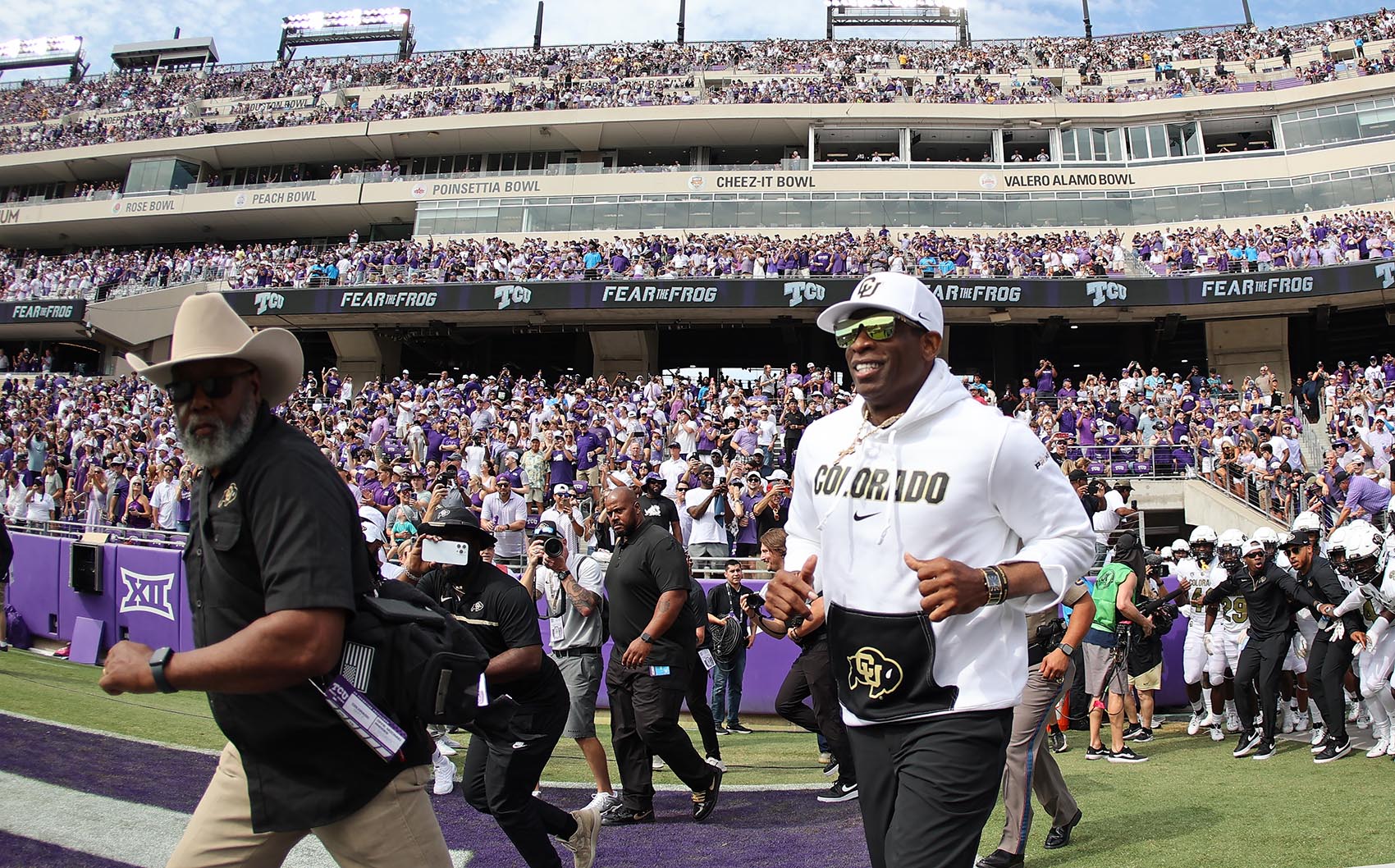
Head coach Deion Sanders of the Colorado Buffaloes takes the field before the game against the TCU Horned Frogs at Amon G. Carter Stadium on September 2, 2023 in Fort Worth, Texas. (Photo by Ron Jenkins/Getty Images)
Jackson State University and HBCU football programs
Sanders is one of the few athletes who played multiple sports professionally. But after he retired, he began coaching his sons’ football teams.
When his sons were old enough to begin college, Sanders began looking for opportunities to coach at the collegiate level. But despite his notoriety, nobody would offer him a job. He was turned down by Florida State, TCU and Auburn, among others. So he decided to sign with Jackson State University, an HBCU.
After leading Jackson State to a 27-6 record and two straight Southwestern Athletic Conference titles, Sanders signed with the University of Colorado and brought many of his HBCU athletes with him.
An unconventional father figure
When Sanders began coaching at Jackson State, his desire was to lift up the entire community, which meant doing things white coaches never would dream of doing. Michael Irvin recounted on FS1’s Undisputed: “In Jackson, you know the crime rate dropped on game day? You know why? ’Cause Deion went and talked to all those guys, all those gang members and said, ‘We want to do something good on game day. Let everybody be able to come here and have a good time.’ And they honored that.”
Growing up without a father, Sanders always has seen himself as a father figure to the kids he coaches.
“If you can reach down inside each kid and help pull out their king, that’s what he does, you’ll win football games and ultimately, you’ll help kids become better in life.”
“Great men a lot of times take their greatest pain and turn it into their greatest promise,” Irvin said. “Those kids are following him everywhere. That’s not a coach. That’s like their dad. … People talk X’s and O’s. It’s about managing people. If you can reach down inside each kid and help pull out their king, that’s what he does, you’ll win football games and ultimately, you’ll help kids become better in life.”
“They tried to paint him as selfish,” Richard Sherman added. “And then you finally get to peel back the layers and you see how much he cares and how many people he’s affected, how many people he’s reached out to, how many people he’s touched in a meaningful and powerful way. He’s shown people, he’s unlocked a lot of people and allowed them to see that being the best version of yourself, being all you can be … you don’t have to be like anybody else, is the most powerful you you can be.”
The predicament of Black coaches
While the Power Five conferences are made up of 46% Black athletes, only 14 of the 133 FBS teams are led by Black coaches. So like Sanders, the only chance many Black coaches have is with an HBCU.
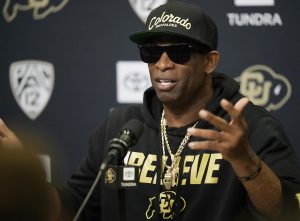
Colorado Head Coach Deion Sanders responds to questions during a news conference after the team’s NCAA college football practice at the university Friday, Aug. 4, 2023, in Boulder, Colo. (AP Photo/David Zalubowski)
On the rare occasion that a Black coach from an HBCU gets an opportunity to lead a Power Five program, he has to take advantage and deliver wins quickly. Stephen A. Smith explained on ESPN’s First Take: “Coming from an HBCU, you can’t wait, you can’t grow incrementally, you can’t scratch and claw and nip and tuck and go a step at a time. You’ve got to leapfrog.”
That’s why Sanders had to clear out Colorado’s roster. There is simply no way to win immediately with the talent of a 1-11 team that lost by an average of 29 points per game the previous year. So when Sanders arrived, he told about 20 players from Colorado’s roster they were going to not make the team, and he told the rest of the team they might want to join the transfer portal because he would be bringing in new talent to compete with them. As a result, the majority of the team quit and only 10 were kept.
A consistent, confident Black man
Deion Sanders has said from the very first day of his hiring that he was going to win right away. Despite the oddsmakers in Las Vegas predicting Colorado to win just 3.5 games this year, Sanders has projected absolute unwavering confidence, which many people do not like.
Sanders has projected absolute unwavering confidence, which many people do not like.
“We’re going to continuously be questioned because we do things that have never been done,” Sanders said during his postgame press conference after beating TCU. “We do things that have never been done, and that makes people uncomfortable.”
And to Sanders, there is a race component to the pushback. “When you see a confident Black man sitting up here talking his talk, walking his walk, coaching 75% African Americans in the locker room, that’s kind of threatening,” he said. “Oh, they don’t like that? Guess what? We’re going to consistently do what we do, because I’m here and ain’t going nowhere.”
Opening doors for the Black community
“The profile he brings to HBCUs, if you’re at a HBCU because of what he’s achieving, think about the opportunities that that’s going to open up,” Stephen A. Smith said on ESPN’s First Take. “What’s the first thing he was doing in the postgame interview? Bringing up HBCUs. Because he’s talking about the lack of a profile and notoriety you have given the HBCUs.”
Smith later added, “What if he’s able to build? What if he ends up in that national championship picture? If he’s successful at Colorado, and they get in the championship picture, you have any idea what it’s going to do for Black coaches? It’s going to be something special.”
Richard Sherman echoed that on FS1’s Undisputed: “He has so much love in the Black community especially. … In the Black community, it feels like he represents us so well. He represents our culture and what we stand for and who we are for better or for worse so well.”
Denying the humanity of the Black community
Tyler Brown was an offensive lineman for Louisianna LaFayette who connected with his coach, D.J. Looney, who like Sanders was a father figure to him. But one day, Looney collapsed on the field with a heart attack in front of Brown and died. Amid his grief, Brown began struggling with mental health issues and couldn’t function in the environment that reminded him of Looney. So he transferred to Jackson State to play for Deion Sanders.
When Brown got injured, his mental health struggles increased. But through it all, Sanders and the coaches at Jackson State were his new father figures. So when Sanders moved to Colorado, Brown naturally wanted to follow him.
But despite his mental health, the NCAA denied Brown’s request for a transfer waiver. Joel Klatt of Fox Sports asked: “Who denied that? What suit stuffed in cubicle 87 B denied that waiver? ’Cause that’s what this reeks of — a robotic bureaucracy that doesn’t care about the humans in the situation, that can’t look at a situation in totality, and can only look at a situation through black and white colored glasses and the letter of the law.”
Robotic discrimination
Each of these stories from the past week — the Nebraska volleyball team, Deion Sanders, and Tyler Brown — illustrate examples of humans coming together to offer healing and hope amidst systemic injustice.
But in these stories, we find some who deny injustice exists, who cast aspersions on the marginalized for how they are going about their liberation, who demand the letter of the law be emphasized to the exclusion of our deepest humanity.
The reason so much of the injustices of these stories exist is due to the robotic bureaucracy of the cultural narratives, laws and systems America — and white evangelicals in particular — has spent decades promoting.
Power hierarchies and punishment-based justice are mirrored in the characters of these stories that dehumanize women and Black people. Those who actually are loving their neighbors and working against sacralized bureaucracy — like Sanders — are seen as dangerous.
This is why, for our culture to heal, we shouldn’t get caught in the trap of debating the finer points of biblical interpretation. Our problem is not one of hermeneutics, but of being out of touch with our basic humanity.
So as we enjoy college sports this year, may we look beyond the fascination with violence and victory that lacks awareness of privilege or of structural injustice. Instead, let’s look for stories that remind us of our deepest human connections, longings and opportunities to promote a justice that restores.

Rick Pidcock
Rick Pidcock is a 2004 graduate of Bob Jones University, with a Bachelor of Arts degree in Bible. He’s a freelance writer based in South Carolina and a former Clemons Fellow with BNG. He recently completed a Master of Arts degree in worship from Northern Seminary. He is a stay-at-home father of five children and produces music under the artist name Provoke Wonder. Follow his blog at www.rickpidcock.com.

